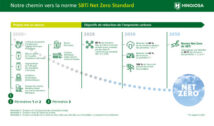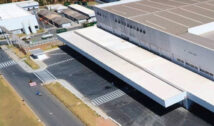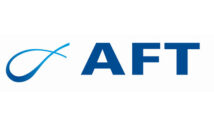
During a press conference held on April 8, Copacel executives presented their conclusions for 2024 and outlined some prospects for 2025. Last year, French paper and board production increased by 6.3% in volume (reaching 6.3 Mt), a rebound above the European average (5.2%). This increase reflects increased demand from customer sectors. On the one hand, this relates to product families that are trending upward (packaging and hygiene). On the other, more exceptionally, this relates to paper, whose consumption has been declining for 20 years (office paper, magazines, book paper, etc.). However, in value, the increase is only 1%, with a turnover of €5.7 billion, which shows a decline in selling prices compared to 2023. Furthermore, the increase in volumes does not offset the very sharp decline in 2023 (-13.5%), a year in which paper and board consumption plunged due to the impact of inflation (which weighed on households) and the use by many corporate clients of inventories built up in 2022.
Uncertainties and obstacles weakening activity
However, according to Copacel, four main obstacles are hampering the development of this sector. The first is the increase in taxation, which is particularly affecting production. Added to this is the growing burden of so-called “environmental” taxation, as evidenced by the increase in water abstraction fees, which, for some companies, can reach 300%. The second obstacle is the cost of energy, whether from gas (LNG replacing pipeline supplies) or electricity. Regarding the latter, Copacel believes
“it is incomprehensible that the ARENH (a mechanism that allows manufacturers to benefit from the competitive advantage of France’s nuclear fleet), which will disappear next December 31, has still not led to an alternative mechanism.”
Copacel is therefore campaigning for the establishment of a regulated mechanism (agreed prices and volumes and decoupling from the European market). The third obstacle is the increasingly complex framework in which companies operate, whether due to French or EU legislation:
“Extremely important objectives, such as the fight against deforestation, can thus be distorted by poorly designed regulations (EUDR), which are vague, and whose implementation is an administrative nightmare.”
The final difficulty: the renewal of retiring employees. Despite technically advanced jobs, linked to themes that align with societal concerns (circular economy, forestry) and better paid than jobs in the service sectors, the sector faces recruitment difficulties. This situation will lead to a strengthening of the sector’s communication.
Expected ripple effects of the trade war; Copacel will define its position on proposed countermeasures in the coming days
Finally, Copacel points to the triggering of a trade war by the United States. As a reminder, since a 1994 agreement between OECD countries, there have been no customs duties between the EU and the USA on pulp, paper and board. However, President Trump’s announcements on April 2, “which Copacel deplores,” have changed the situation, with a 20% increase, starting April 9, on pulp, paper, and board. While its direct effects will be limited for France (only 1% of French paper and board production is exported to the USA), its “ripple” effects could be much more significant. On the one hand, with the economic slowdown, while French growth forecast for 2025 is already very fragile. On the other hand, with the slowdown in customer sectors (for example, wine and spirits packaging). Also, with the risk that the EU will become the outlet for third-party producers, such as Brazil or Canada. And finally, due to a possible increase in intra-European competition (particularly with the Nordic countries). Copacel announced that it will define its position in the coming days regarding proposed countermeasures in conjunction with Cepi and with the aim of being as consistent as possible at the EU level.
“Our country is experiencing a lower growth rate than the EU and anemic compared to the United States,” concluded Christian Ribeyrolle, its president (photo). “Moreover, the trade war that is starting will hamper economic activity. In this context, we expect the public authorities to tackle the four areas of concern: increased tax pressure, the cost of energy, the increasing complexity of business life (particularly that resulting from the EU Green Deal), and the attractiveness of industrial professions.”
Valérie Lechiffre

































